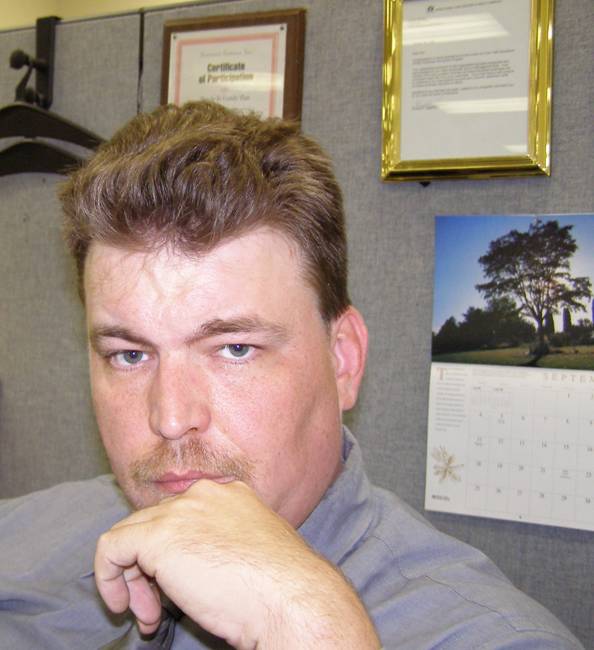Americans have an instinctual mistrust of their armed forces. Yes, we tie yellow ribbons around every available tree and car antenna, and we break into spontaneous applause when a squad of uniformed troops walk past us in the airport, freshly home from Iraq, and yes, we buy the fellows a round when they walk into the bar. But that’s different; that’s the guys and gals who are serving, and we love them. It’s the establishment that makes us a little leery.
"Oh, Don, you’re being absurd," I hear you saying. Especially now, with over half the population in a flag-waving frenzy and current policy apparently taking the form of a Pax Americana Plan.
But that’s exactly the crux of the problem. Americans are willing to have a standing army only for the purposes of maintaining peace. It’s hardwired into the very system of the American military. We used to have a War Department – now we have a Department of Defense. We used to fight wars, real wars, against belligerent nations directly opposed to us, with formal resolutions and severance of diplomatic ties, and a Congressional Declaration of War. Now we fight “police actions” – limited engagements designed to pacify (there’s that “peace” intent again) certain groups, nations, or areas.
So some of you are rolling your eyes and muttering that it’s not our policy or our intention, but our burden. That, as the only superpower standing, we have an obligation to use our strength to preserve the peace, and that we certainly never intended it that way. I respectfully direct you to our military history.
Many of the founding fathers and succeeding political leaders have been openly opposed to the maintenance of a full-time, professional army, feeling that it is both a drain on the treasury and a potential threat, should the leaders of the military decide to take on political power backed by the threat or reality of attack. (Rome, anyone? Anyone? Bueller?)
As a result, the armed forces have lived on a perpetual seesaw – favored when a national emergency requires that troops be mustered and put into the field, but viewed with distrust and even contempt during times of peace. Their existence is a reminder of the possibility of war, and Americans, for as warlike a people as they can be, dislike being reminded of such a possibility.
In an effort to make use of this trained force that was ready to hand, the government early on used the troops not as “soldiers” in the sense of fighting wars, but as “peace-keepers.” Initially, during the early years of the nation and throughout the Westward expansion, this meant posting regular Army troops along the frontier to defend settlements from Indian attacks, and to protect reservation Indians from white depredations. Not soldiers, in the accepted manner of conquering columns on the attack, but policemen. Their mission was not, generally speaking, one of making war on the Indians, but of “pacifying” the situation. Sometimes this called for war and sometimes it called for protecting, feeding, and settling displaced tribes. Troops were used for purposes of putting down railroad strikes, intervening in local shootouts, monitoring elections in the Reconstructed South.
For many years the role of the armed forces walked this schizophrenic line, attacking villages filled with people to whom they had given tons of rations and supplies a few months before. It has continued all through our present.
So why do these police actions fail? Because police work can only be done properly when the police force is recognized as a legitimate authority, and American troops are generally not regarded as legitimate authorities when they are sent in to “pacify” an area or a people. Police work depends upon the mutual consent of the people to be governed and policed. Naturally, the individual malefactor or gang of cutthroats do not recognize the authority of the police, but the general population does, and that’s what makes for effective policing.
Jack the Ripper was never caught. Several of the police officers involved expressed the strong opinion that the killer must have been a Polish Jew immigrant. Why? Not only because of the prevalent opinion that no Englishman could have committed such awful crimes, but also because the police were convinced that the man was “hidden by and among his own people.” The Polish Jews were outsiders, outside the mainstream order which accepted the police as a legitimate authority. If the police were considered antagonistic or illegitimate, then persons who had committed crimes could find allies to aid, feed, and hide them.
The US Cavalry was not regarded as a legitimate authority by the Indian tribes, and that is what led to the shooting wars. Most of the wars wound up taking place because a limited handful of Indians, usually in response to white aggression of one kind or another, struck and committed a crime against whites. When the Army sent troops or agents to apprehend the suspects, the Indians refused to turn them over to what they considered not only a hostile, but an illegitimate authority. The shooting began as an effort to impose legitimacy through force.
Our troops cannot be expected to function as police officers in Iraq, separating guilty persons from innocent, and that is the problem. Police officers have to be recognized as representatives of legitimate authority, and occupying troops are never accepted as such. If a military occupation is in place, it means that, by definition, the occupying force is being resisted by the local inhabitants. That means that while you may have collaborators, the majority or a very powerful minority will not accept the authority of the occupiers, and resisters will always have someplace to run.
Soldiers are warriors, not peace-keepers, and we do well to remember that always.
Wednesday, July 19, 2006
Subscribe to:
Comments (Atom)
